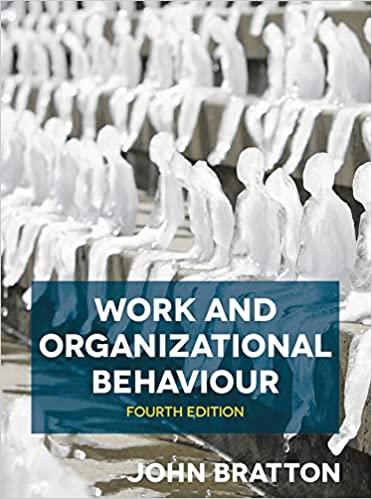1. Imagine you are an employee facing the closure of your workplace if you do not accept...
Question:
1. Imagine you are an employee facing the closure of your workplace if you do not accept a reduction in the terms and conditions of your employment. If you were offered a financial inducement would you return to work under the less attractive conditions or would you be prepared to accept the union’s advice to strike in the hope that the company would return to negotiations? Strikes involve the withdrawal of labour and lockouts occur when employers close their facilities. In Britain both are classed as ‘stoppages’ so there are no statistics on lockouts (ONS, 2019). Lockouts have been classed as passive, when they are a response to union militancy, and offensive, when used by employers to pursue anti-union agendas. A study of trends in Canada, Australia and Germany, where both types of stoppage are recorded, showed an increasing proportion of stoppages linked to lockouts
(Briskin, 2016). A dispute at the Grangemouth oil refinery concerning the suspension of a shop steward for using company facilities for local Labour Party business escalated into the closure of two plants and a humiliating rout of the trade union Unite. (This account relies upon The Guardian articles listed below.)
Unite called for a vote for industrial action and further negotiations. The next day, Ineos, the Swiss-based owner of the oil refinery, which produced 85 per cent of Scotland’s petrol, locked out the workers and closed the refinery.
Step by Step Answer:







